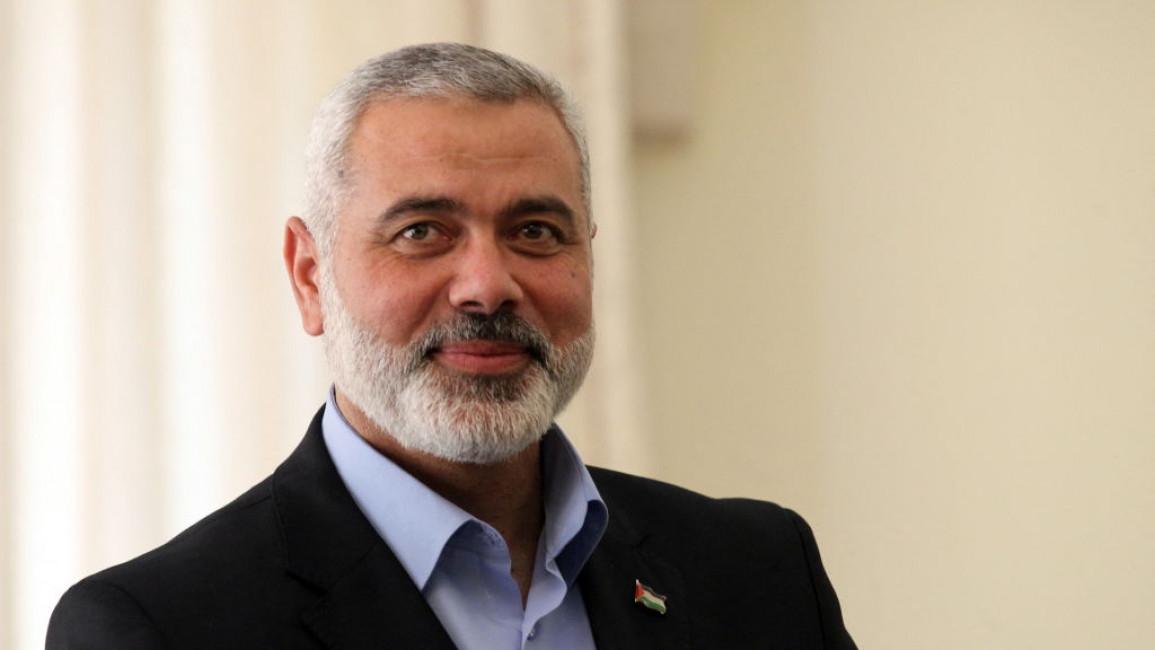Hamas chief Ismail Haniyeh blames Israel for stalling Gaza ceasefire
Hamas chief Ismail Haniyeh blamed Israel on Sunday for stalling ceasefire talks and rejecting Hamas's demand to end the war on Gaza, but said the group was still seeking a negotiated solution.
Haniyeh said Israel hadn't yet given a commitment to end its military offensive, pull out its forces and allow displaced Palestinians to return to their homes across the Gaza Strip.
"We don't want an agreement that doesn't end the war on Gaza," said Haniyeh in a televised speech, one day before the Muslim holy month of Ramadan.
"The enemy still refuses to make guarantees and clear commitments over the issue of ceasefire and stopping the aggressive war on our people," he added.
Haniyeh said his group was determined to defend its people and, at the same time, seek a negotiated solution.
"Today, if we receive a clear position from the mediators, we are ready to proceed with completing the agreement and to show flexibility on the issue of prisoner exchange," said Haniyeh.
He said since the start of the negotiations, Hamas had focused on three things: an end to the war; that the "steadfastness and heroism of our people be translated into [tangible] achievements"; and that the alarming "day-after" plans being hatched against Gaza be blocked.
Since 7 October, Israel has carried out a deadly and indiscriminate military campaign in Gaza, killing 31,112 Palestinians as of Sunday, mostly women and children, according to Gaza's Health Ministry.
This followed the Hamas-led 7 October attack, during which 1,200 Israelis were killed and 253 abducted, according to Israeli tallies.
Haniyeh also said his group was open to forming a unity government with the rival Fatah movement of Palestinian President Mahmoud Abbas and other factions.
He said steps towards that goal could include electing a Palestinian National Council and forming an interim national consensus government with "specific tasks" until legislative and presidential elections are held.
Haniyeh said Hamas was "more concerned than any time in the past with the unity of the Palestinian people and the rebuilding of its political and leadership structures on sound and solid foundations".
Efforts to reconcile the two groups and end divisions that worsened following the 2007 takeover of Gaza by Hamas have failed. Abbas's authority has since been reduced to the Israeli-occupied West Bank.
(Reuters & The New Arab Staff )


![President Pezeshkian has denounced Israel's attacks on Lebanon [Getty]](/sites/default/files/styles/image_684x385/public/2173482924.jpeg?h=a5f2f23a&itok=q3evVtko)



 Follow the Middle East's top stories in English at The New Arab on Google News
Follow the Middle East's top stories in English at The New Arab on Google News


